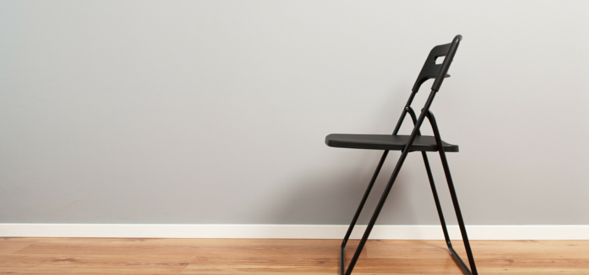 Note from Jenna: This is a guest post by Naomi Dunford, my friend and business consultant who runs IttyBiz.com.
Note from Jenna: This is a guest post by Naomi Dunford, my friend and business consultant who runs IttyBiz.com.
Although she’s writing from the perspective of business writing or blogging, her wonderful ideas for how to cope with “coming up empty” are useful for writers of all sorts.
Take a look and see what resonates as useful for you.
![]()
Today, I completely ran out of things to say.
I wrote the introductions for my next seven newsletters.
I found quotes for the next month.
I wrote 53 emails, planned a trip, and took two sales calls.
And I called my mother.
I should note here that I’m writing this on a Saturday.
I’m sure it comes as a surprise to nobody, but at some point in this process, I completely ran out of things to say.
And poor you! You are sitting there, breathlessly waiting for your next instalment of the IttyBiz daily and I am dry. I got nothing.
Hmm.
It’s weird when this happens. You’re on this crazy roll, getting an absolutely stupid amount of stuff done, and you’re getting accustomed to the momentum. It’s like shopping in a crazy busy mall. You get into a flow of bam! bam! bam! Dodge, charge, pivot, go, turn, and then…
Silence. Motionlessness.
It’s like all of a sudden the people are gone and the stores are shut and you’re not entirely sure what you’re supposed to do now.
What you are supposed to do now
When you are experiencing temporary burnout, you must do something that is not work.
That something should be, at minimum, comparable in time and attention level as a chunk of work. If you would be working for two hours, you should take at least two hours away. If you would be working on something mentally engrossing, you should do something equally engrossing.
This seems obvious to those around you, and yet completely counterintuitive to you. You think that you should stay busy, stay occupied, get something useful done. You think that you should try harder, or get a coffee, or stare at your computer screen for a while in case that solves the problem.
Nope. This is one of those few situations where the majority is actually right.
All your idiot friends who tell you that you need to take a little break, step away from the computer for a while? Those ones who just don’t get it?
Yeah, unfortunately, it’s you who doesn’t get it. (Please bear in mind here that when I say “you”, I mean “me”.)
Time for some practical examples!
If you were going to work on outlining your next project, and it was going to be mentally taxing, you need something that will not only utilize a completely separate area of your brain, but something that will actively restore you. A movie, perhaps. A run, maybe, as long as you’re not the type who thinks while you’re running.
If you were catching up on your emails and it wasn’t going to be taxing, you can just do something dumb and brainless. Candy Crush: Soda Saga is a nice choice here, but if you’re stuck on a level, you’ll only get five minutes. But the movie option still works. I routinely TiVo Jeopardy! for situations like this one.
If you’re doing something that’s making you numb, like taxes, you’re going to need something energizing. Some kind of personal treat would be a good idea, ideally something that gets you far away from the source of the problem. Drop in on a yoga class or get an ice cream. Bonus science points if you go somewhere you don’t normally go – it activates the novelty parts of your brain and makes you more alert for a good while afterwards.
Some tips for taking a break:
1. One thing that I find really helpful here is setting a little intention before you take your big break. I say something like, “OK, I’m going to go watch Legally Blonde so I can give my brain a chance to fully restore. That way I can come back rejuvenated and ready to kick some ass.”
I avoided doing this for a long time because I thought it was cheesy. Then I tried it and it worked. Then I tried it again and it worked again. Once the third time succeeded, I had to admit that it was a good strategy for me. I value science over ego, and if it works, it works.
2. If you hate the task, you may want to admit it to yourself. I don’t hate this task, I love it, but there are plenty I don’t love. When I was recording launch multipliers in month 11 of BIG LAUNCH, after I’d already done it once before but my computer wiped the files? Yeah, those are the kind of situations made for “Oh my God I ****ing hate my ****ing job and I ****ing hate this ****ing product and I swear I am moving to Costa Rica tomorrow.”
Sometimes, saying exactly how you feel is remarkably cathartic.
3. On the other hand, if it’s just standard issue fatigue, try to put a positive frame around your break. This is not the end of the world. You’re in a line of work that drains your resources. Being periodically drained is hardly a state of emergency. Sitting around saying you’re soooooo drained and soooooo tired and juuuuuust caaaaaaan’t work is not helpful.
Pretend you work for a moving company. Those guys are tired at the end of the day, and they probably can’t lift one more thing. You know what they do? They drink some beer, watch some baseball, and put their feet up. They do not put in an emergency call to their life coach, claiming existential catastrophe.
Sit down, enjoy your Strictly Ballroom, and smile. Your rejuvenating, not injured.
4. Plan for it. If you’re in a periodically draining line of work, this is going to happen. It might be a good idea to have a plan and some supplies on hand so you can immediately shift gears when you’re feeling the signs.
People with diabetes plan for crashes. Parents of preschoolers plan for crashes. Don’t get superstitious about this.
The more you plan for a crash, the faster you can recharge, and the faster you can get back on your feet.
![]()
Thanks for reading! Be sure to check out Naomi’s other guest post here about writer’s block.


Hi Jenna and Naomi,
These are great ideas for writers who come up empty.
I am a walker – every day unless the weather forbids it. And sometimes I take a tiny notebook. My mind produces millions of ideas for everything under the sun when I walk. Essays, stories, new programs, new shows. I end up with many ideas to choose from. When we put pressure on ourselves, it can act like an idea tourniquet.
Giulietta, I LOVE “idea tourniquet”. Thank you for that brilliance. And walking is wonderful, I agree!
Hello! A lot of times I stare at my computer feeling empty and don’t know what to do. I feel like I want to do something but I can’t write a sentence. I just sit there staring. I then begin to walk to the fridge to raid some food. It is bad when i start to search for icecream and chocolates. Thanks for your post. Btw i’m diabetic too!
It might be useful, Iris, to consider using some writing prompts as a place to get started. My colleague Grace Kerina has an affordable series you might be interested in here: http://gracekerina.com/shop/creativity-prompts/. Sometimes it’s the blank screen that stalls us, and if we get into the flow of writing again we can get going on other projects. Prompts can be a great way to do that.